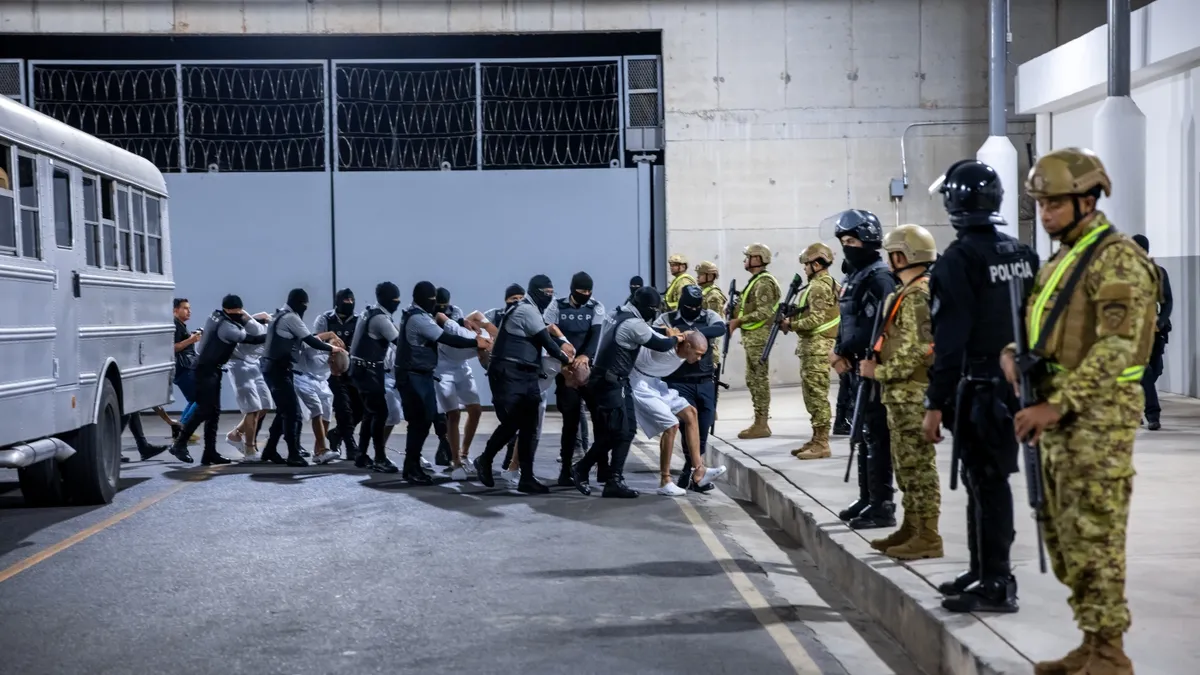
A federal judge in Texas has made a significant ruling regarding President Trump's use of the Alien Enemies Act (AEA) to detain and deport Venezuelan immigrants from South Texas. On Thursday, U.S. District Judge Fernando Rodriguez, Jr., who was appointed by Trump, declared that the president's invocation of the AEA exceeds the statute's intended scope and contradicts the statute's plain and ordinary meaning.
In his ruling, Judge Rodriguez determined that the government lacks the lawful authority under the AEA to detain Venezuelan aliens, transfer them within the United States, or remove them from the country. This decision comes amid concerns raised by the American Civil Liberties Union (ACLU), which reported that the men involved in this Texas case face imminent removal under the Alien Enemies Act. These individuals are accused of having connections to Tren de Aragua, a notorious Venezuelan gang, and are currently being held at the El Valle Detention Center in Raymondville, Texas.
The judge's decision is applicable across the entire Southern District of Texas, which encompasses major cities such as Brownsville, McAllen, and Houston. While other courts have attempted to block the Trump administration's deportation efforts under the AEA, this ruling marks the first occasion where a judge has explicitly stated that the act cannot be utilized against individuals alleged to be gang members entering the United States.
Lee Gelernt, an attorney with the ACLU and lead counsel for the three Venezuelan plaintiffs, emphasized the importance of this ruling. He stated, "The court ruled that the president cannot unilaterally declare an invasion of the United States and invoke a wartime authority during peacetime." This decision is critical as it prevents more individuals from being sent to the infamous CECOT prison, a maximum security facility in El Salvador.
Upon conducting an extensive analysis of historical records, Judge Rodriguez concluded that the ordinary meaning of "invasion" or "predatory inclusion" at the time the Alien Enemies Act was enacted required a military incursion. He clarified that the criminal activities attributed to Tren de Aragua members, although harmful, do not meet the legal definition of an invasion or predatory incursion as outlined in the Act. The Proclamation issued by Trump made no mention or suggestion of an organized, armed group entering the United States with the intent to conquer or take control of the nation.
Judge Rodriguez further explained that while the court defines "invasion" or "predatory incursion" as involving an organized, armed force entering the United States, such actions do not necessarily need to precede an actual war. The Department of Homeland Security has not yet responded to requests for comment regarding this ruling.
If the Trump administration decides to appeal this decision, the case will be taken to the 5th U.S. Circuit Court of Appeals, which is recognized as one of the most conservative courts in the United States. This case could ultimately make its way to the U.S. Supreme Court, potentially setting a significant legal precedent regarding the application of the Alien Enemies Act.
In March, President Trump issued a proclamation that accused Tren de Aragua of conducting actions that amount to an invasion or predatory incursion against the United States. He described the group as engaging in hostile actions and irregular warfare at the behest of the Maduro regime in Venezuela. Trump's administration has utilized the AEA to deport over 130 Venezuelan men to the maximum security prison in El Salvador, claiming all were affiliated with Tren de Aragua, although they have acknowledged that not all possess criminal records.
The Texas lawsuit is one of several legal challenges arising from Trump’s proclamation and the administration's subsequent actions. In late March, a three-judge panel from the U.S. Court of Appeals for the D.C. Circuit upheld a prior ruling by federal Judge James Boasberg, which denied the White House's use of wartime authority by a vote of 2 to 1. Judge Patricia Millett, appointed by former President Barack Obama, pointed out the lack of due process afforded to the alleged gang members, stating, "The government's removal scheme denies Plaintiffs even a gossamer thread of due process."